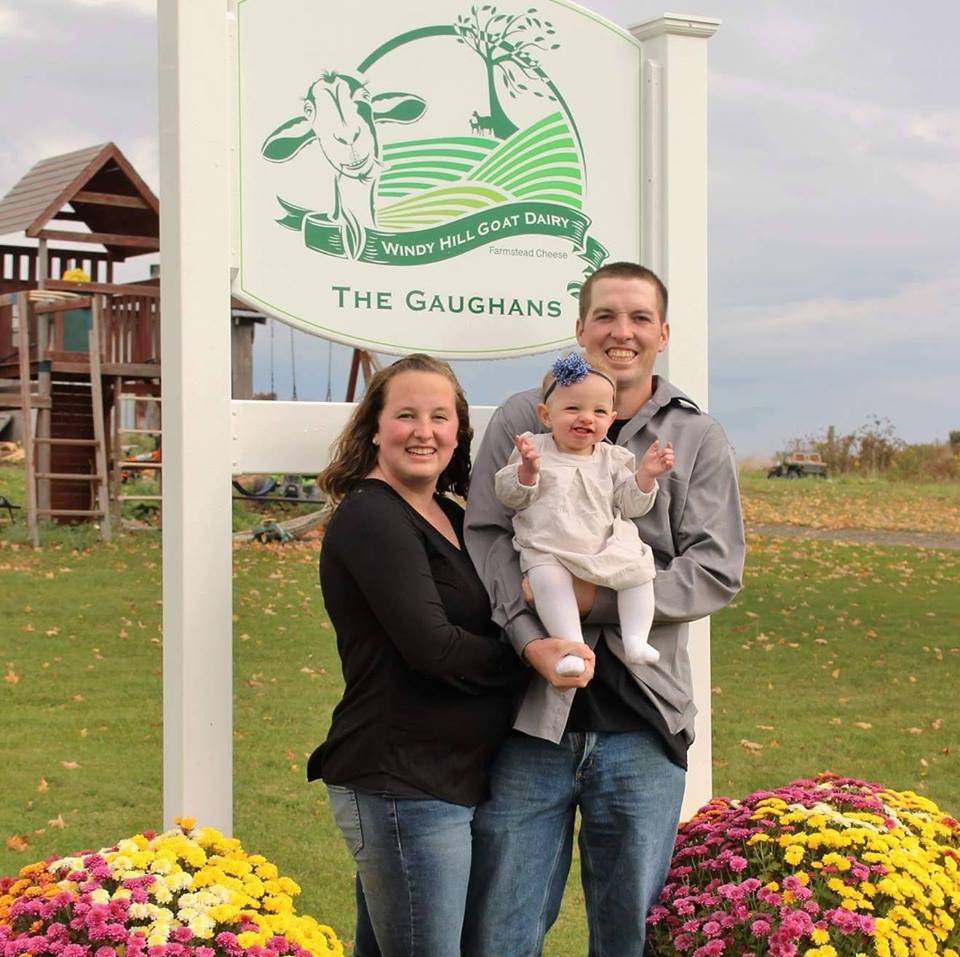I love goats. God help me, I just adore everything about them!
Our first goats were all “meat” breeds. Much like the Angus breed of cow that is popular for beef, we started out with goat breeds known for meat production, including Boer and Spanish. And although my husband and I didn’t grown up eating goat meat at home, we’ve since learned to appreciate how good it truly is. They rest of the world enjoys goat quite a lot—it is the #1 consumed red meat in virtually every other country in the world.
But when customers started asking about goat cheese…well, why not get into the cheese business? We bought a small herd of dairy goats and set about learning how to milk, balance proper nutrition, and make cheese. It quickly became abundantly apparent that we were good at only one thing: making cheese! The other part—raising babies on milk replacer while coaxing high quality milk from the mothers—was clearly not our forte. We set about looking for goat dairies willing to sell us their milk.
Over the years, we’ve had the immense pleasure of working with a handful of goat dairies in the area. For some of them, making milk and selling it to processors is their sole business. For a few others, they are cheesemakers themselves.
Windy Hill Goat Dairy in Cherry Valley is one of the best dairies we’ve ever worked with. Barry and Kay Gaughan, along with Barry’s parents Vicky and Chuck, milk approximately 150 goats. Besides selling milk to us and other processors, they make their own goat cheeses, yogurt, bottled milk (including chocolate!), soaps and lotions. You can find them at farmer’s markets in Clinton, Richfield Springs, Syracuse and Schenectady. The public can visit the farm to purchase products, too, but make an appointment first!
I sat down with Barry and Kay to ask them a few questions about their operation:
Q: Can you tell me a little about the history of your farm?
A: At Windy Hill Goat Dairy, we have had goats for ten years, making cheese for four. The farm has been in our family for 64 years. It was an operating cow dairy from 1954 until 1994, when the cows were sold. We wanted to take what was once a successful cow dairy and make it into a successful business again. The farm was too small to sustain the number of cows needed to be an economical choice. Goats seemed to be a viable option.
Q: Can you describe your operation and do you milk year-round?
A: We have a double-eight milking parlor. We milk Toggenburgs, Lamanchas, Saanens, Oberhaslis, and Alpines. We are pickier about milk production in our herd, rather than breed types.
Most goat dairies are seasonal, but consumers want fresh goat products year-round. We produced milk year-round for the first time in 2016. It is difficult to break goats from their natural breeding schedules. (Goats are “short-day” breeders, meaning their natural breeding cycle is triggered by the shorter days in fall.) The way we achieved milking year-round was by using different breeds of bucks to bring our does into heat. Also, we used artificial light to fool the goats so they didn’t know when the days were getting shorter.
In a typical year, we have 325-400 babies, depending on the number of twins and triplets we have.
Q: What are some of the best and worst things about what you do?
A: Farming with family is great; you get to work with your loved ones on a daily basis. Also, with our marketing we get to go out and see the public’s opinion of our products first-hand. On the other hand, we face many challenges with cash flow, especially at certain times of the year. It is hard to get a bank to lend you money with such fluctuation and uncertain markets. Another big challenge of all agriculture is you’re at the mercy of Mother Nature.
Q: What does the future look like for Windy Hill Goat Dairy? And do you plan to continue to work with processors like Jones Family Farm?
A: Our hope is that we can continue to meet the demands for our products and the demands of the processors buying our milk. We will continue to look for ways to diversify our farm to make sure that our farm stays sustainable for future generations.
We like selling to fellow processors, as it helps diversify our operation. Other advantages are quicker turnaround on cash flow, and it frees us to accomplish other farm tasks. Of course, selling to other processing plants, we create our own competition. On the other hand, it’s our milk that’s making their products…so we are making money on our competition! We’ve made good friends along the way, and are all working together to make each of our farms and farming community more resilient.
I couldn’t agree more! Check out Windy Hill Goat Dairy and their products by finding them at your local farmer’s market or visit their Facebook page.
Windy Hill Goat Dairy
Barry & Kay Gaughan
504 North Road
Cherry Valley, NY
windyhilgd@hotmail.com
